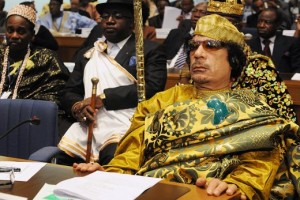By George Grant
Tripoli, 30 May:
The Supreme Court has ruled that the constitutional legality of Law 37 should be debated in open . . .[restrict]court, and has called for a public session to be held in the Tripoli Supreme Court on 3 June.
The challenge to the law was brought before the Supreme Court by a group of Libyan lawyers, who argued that Law 37 places unacceptable restraints on freedom of expression.
Law 37 makes it a criminal offence to glorify “Qaddafi, his regime, his ideas or his sons”, with the aim of “terrorising people” or “weakening public morale” during times of war. The law defines Libya as currently being in a state of war.

In addition, anyone who “insults Islam, or the prestige of the state or its institutions or judiciary, and every person who publicly insults the Libyan people, slogan or flag”, or does anything else to “harm the 17 February revolution”, could be jailed.
The law has come in for widespread condemnation from both Libyan and international lawyers, journalists and rights groups since it was enacted earlier this month. Lawyers For Justice in Libya (LFJL), an influential group of Libyan legal experts, has described this and similar laws as “ones which are familiar to all Libyans after living under Qaddafi’s rule for 42 years”.
Amnesty International has likewise described the legislation as an “eerie reminder” of the draconian restrictions on speech deployed during the Qaddafi-era, whilst Human Rights Watch has warned that “laws restricting what people say can lead to a new tyranny”.
[/restrict]








